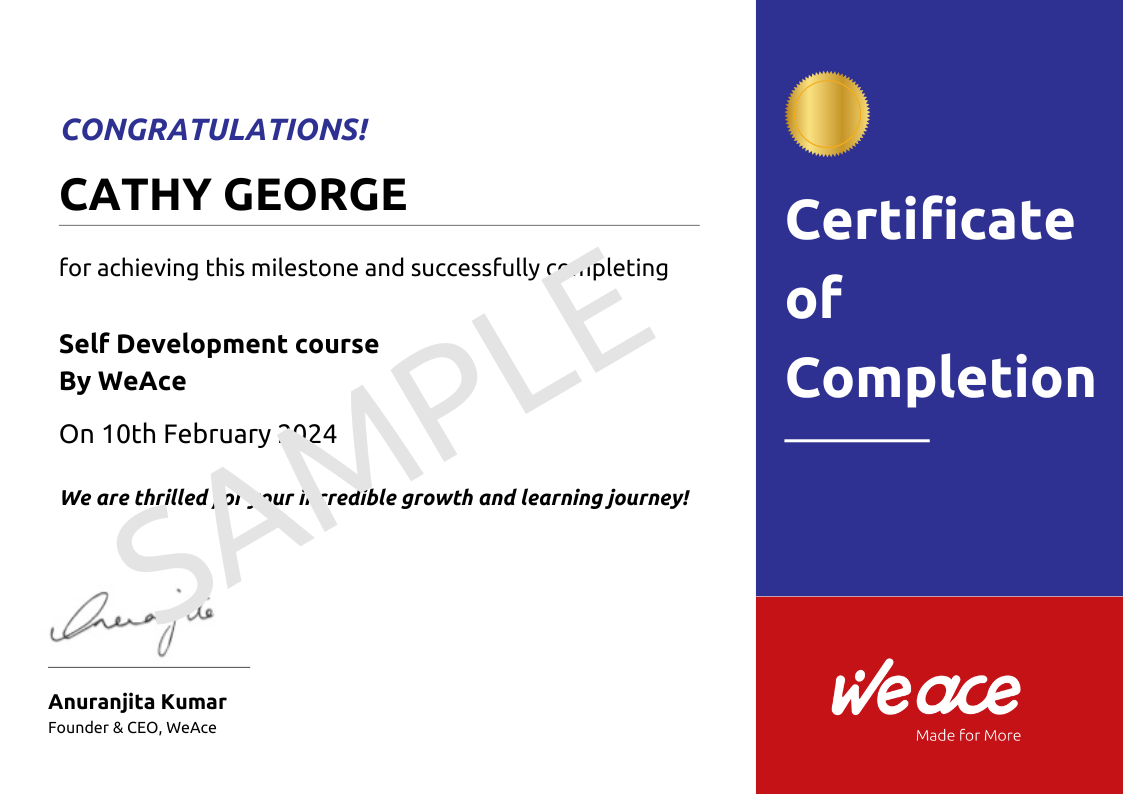Course Details
This is a half-day program for a batch size of 30 professionals.
1. Introduction to Team Management
- Definition and Importance: Understanding what team management is and why it is crucial for organizational success.
- Roles and Responsibilities: Clarifying the roles of a team manager and the expectations from team members.
2. Building and Leading Teams
- Team Formation: Strategies for selecting and assembling the right team members.
- Stages of Team Development: Familiarizing with Tuckman's stages: Forming, Storming, Norming, Performing, and Adjourning.
- Leadership Styles: Exploring different leadership styles (e.g., autocratic, democratic, transformational) and their impact on teams.
3. Effective Communication
- Communication Skills: Techniques for clear and effective communication within a team.
- Feedback Mechanisms: Providing constructive feedback and fostering an open communication culture.
- Conflict Resolution: Methods to handle and resolve conflicts constructively.
4. Motivation and Engagement
- Motivational Theories: Understanding theories like Maslow's hierarchy of needs, Herzberg's two-factor theory, and their application in motivating team members.
- Engagement Strategies: Techniques to keep the team motivated and engaged, including recognition and rewards.
5. Delegation and Empowerment
- Effective Delegation: Principles of delegation and how to entrust tasks to team members.
- Empowering Team Members: Encouraging autonomy and empowering team members to make decisions.
6. Performance Management
- Setting Goals and Objectives: SMART goals and aligning team objectives with organizational goals.
- Monitoring and Evaluation: Tools and techniques for tracking performance and progress.
- Providing Feedback and Coaching: Regular performance reviews and coaching for continuous improvement.
7. Team Dynamics and Collaboration
- Understanding Team Dynamics: The impact of individual behaviors on the team.
- Enhancing Collaboration: Techniques to foster teamwork and collaboration, including team-building activities.
8. Time and Resource Management
- Prioritization and Planning: Managing time effectively and prioritizing tasks.
- Resource Allocation: Efficient use of resources to maximize team productivity.
9. Decision-Making and Problem-Solving
- Decision-Making Models: Various models and approaches to decision-making.
- Problem-Solving Techniques: Strategies and tools for effective problem-solving within a team.
10. Adaptability and Change Management
- Managing Change: Techniques to manage and lead through organizational changes.
- Adaptability: Cultivating a flexible and adaptive team culture.
11. Technology and Tools for Team Management
- Project Management Tools: Introduction to tools like Trello, Asana, or Slack that facilitate team management.
- Remote Team Management: Strategies for managing virtual teams and leveraging technology for remote collaboration.
For more information on pricing and registration, contact [email protected]
Program Structure
Introduction to Team Management
Enhancing Team Performance
Advanced Team Management Techniques
Get your certificate of completion

-
DURATION 3 Hour(s)
-
LEVEL Mid Level (8-15 years), Senior Level (15+ years)
-
FORMAT Online Instructor Led
-
CERTIFICATION Yes
-
Academy Leadership & Management
-
Topics Team Management
-
SKILLS Teamwork
-
TRAINER WeAce

/filters:strip_exif()/wocademy/images/logo/Wen7I0ngw6VGTTzvvnpFoukYH8QdMYXfNg4B462b.jpg)
 Led
By: WeAce
Led
By: WeAce
 Online
Self
Paced
Online
Self
Paced
/filters:strip_exif()/wocademy/images/logo/3o5h08Q8NilJpXEXBVGylIpbu8HHdWTolvv965cE.jpg)
/filters:strip_exif()/wocademy/images/logo/KmpG87chUEpQVlgUMpCCq9E3Z5vQJxUOCAZl89Nf.jpg)
/filters:strip_exif()/wocademy/images/logo/tEoW8Su2GbkmNHCDU1cO7jci7LJDRAhAO6fjNVl0.jpg)
/filters:strip_exif()/wocademy/images/logo/QkkHGLpK38cYTAuugzdDaFYi0mtyRprBr9EfhSc5.jpg)
/filters:strip_exif()/wocademy/images/logo/ZuJqx82N6kUTBWvThvLJK1rsKAfNB0xc3gHEkYNf.jpg)
/filters:strip_exif()/wocademy/images/logo/6skaaEJjornOaOaZ5L1QwahKSCEIWSnB7gJhBGUH.png)